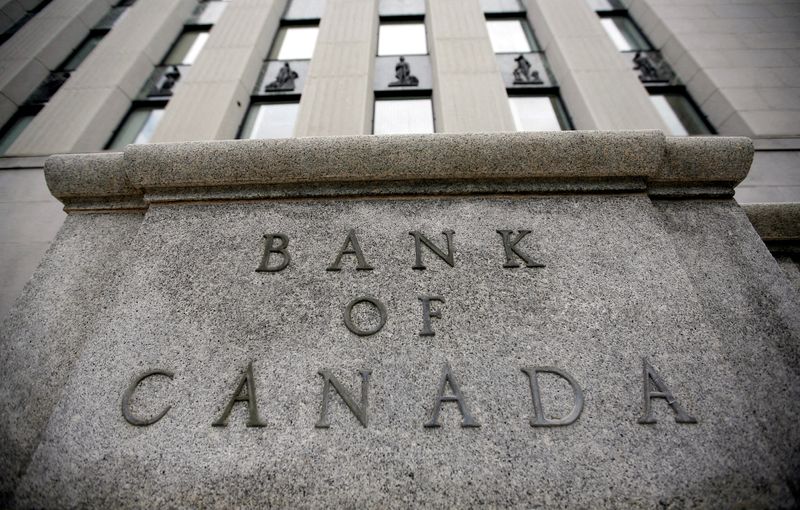By Promit Mukherjee
OTTAWA (Reuters) - The Bank of Canada (BoC) may dash hopes of a June interest rate cut and instead move in July, which will give it seven more weeks of key data to confirm the recent trend of a slowing economy and continued easing of inflation, some economists said.
Despite April's cooling inflation data released on Tuesday, the money markets are factoring in only a 53% chance of a 25 basis points cut in June, while odds of a July rate cut is fully priced in.
Some economists justify the markets hesitation to lock in a June cut by arguing the central bank will have two more sets of inflation, GDP and jobs data to make a more informed decision by waiting till July 24, rather than moving on June 5.
"From a risk management standpoint, it makes sense for the Bank of Canada to wait the extra six or seven weeks to be as certain as it can be that the inflation trend is going to continue," said Andrew Kelvin, Head of Canadian and Global Rates Strategy at TD Securities.
"It will be able to cut rates with even greater confidence in July."
That will be consistent with what BoC Governor Tiff Macklem has repeatedly said about the need for more evidence to establish that inflationary pressures were sufficiently weeded out of the system before a rate cut cycle could begin.
"In the months ahead, we will be closely watching the evolution of core inflation," Macklem said in his testimony to the House of Commons earlier this month, insisting he would like to see a sustained easing in core inflation.
A solid jobs data earlier this month and a relatively balanced economic growth could also be the factors that could make the bank wait for more data, with Macklem once again reiterating the need for further evidence on June 5, economists and traders said.
Even at the risk of upsetting the financial and housing markets, a wait until July could also help the BoC to not diverge too much from the U.S. Federal Reserve, risking a drop in local currency as Macklem himself admitted earlier that there was a limit to how far U.S. and Canada's rates can diverge, some said.
The April consumer prices rose at its slowest pace in three years to 2.7%, data showed on Tuesday, and has consistently stayed below 3%, which is the upper range of the BoC's inflation target.
The closely-watched core inflation measures - primarily CPI-trim and CPI-median - were together below 3% for the first time since June 2021 inching close to the central bank's 2% target.
Apart from new sets of data, the BoC will also release its quarterly survey of business leaders and consumers on economic growth and inflation expectations on July 15, Derek Holt, Vice President and Head of Capital Markets Economics at Scotiabank, wrote in a note.
"The BoC will have much more evidence by the July 24th decision and not much more by the June 5th meeting other than GDP," he said.

However, it will not be surprising if the Bank still goes ahead with a cut in June as the BoC is often considered more dovish that many other central banks, economists said.
Thierry Wizman, Global FX & Rates Strategist at Macquarie said that there could be a rate cut in June if the BoC was "willing to look through the recent robust data on employment," even though he maintains that a rate cut in July is more likely.